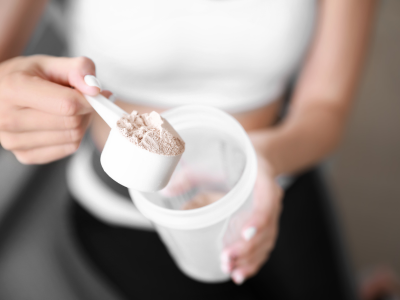Why Protein Matters in Menopause by Dr. Erin Coffey, ND
Protein is a critical macronutrient that provides the body with essential amino acids that build and repair cells, support hormone and neurotransmitter production, produce enzymes, fuel immune health, and preserve muscle and bone strength.
Protein and Life Stages
Protein needs vary significantly depending on stage of life and overall activity levels.
Children & Teens: Growth spurts and development demand higher protein needs relative to body size.
Pregnancy & Postpartum: Protein supports fetal growth, tissue expansion, and milk production.
Active Adults: Regular exercise requires increased protein to support muscle growth and recovery
Older Adults: Protein becomes crucial to slow muscle loss and support bone health.
Why Protein Matters in Menopause
During menopause, hormonal changes—especially the drop in estrogen—lead to shifts in metabolism, muscle mass, and bone density.
Preserving Muscle Mass: Declining estrogen can play a role in muscle loss. Adequate protein intake (alongside strength training) helps maintain muscle and prevent frailty.
Supporting Bone Health: Protein provides building blocks for bone, and higher intake has been linked with reduced risk of fractures in postmenopausal women.
Hair, Skin & Nail Health: Protein provides the structural components that keep your hair strong, skin firm, and nails resilient.
Metabolic Support: Adequate protein helps stabilize blood sugar, reduce cravings, support healthy weight management, and stabilize energy levels.
Immune & Repair Support: Protein is essential for immune function and tissue repair.
Mood and Sleep: Protein plays a role in hormone and neurotransmitter regulation which can impact mood and sleep.
How Much Protein Do Menopausal Women Need?
There is a range of views on protein needs but generally somewhere around 1 gram per pound for women over 50 is considered within the right range. That varies depending on a number of variables including activity levels.
Further Considerations:
Prioritize clean, whole-food protein sources such as lean meats, poultry, fish, eggs, beans, lentils, nuts and seeds, soy and dairy products legumes, lentils, nuts, seeds, pasture-raised eggs, organic poultry, fish, and dairy.
Protein absorption is supported by a healthy digestive system, digestive enzymes, balancing acid and alkaline foods and a robust microbiome.

